|
With in-person author events still on hold indefinitely, I'm devoting one blog post each month to an author interview. This month's interview is with Sharon Dukett, author of the memoir No Rules. Desperate to escape the stultifying life she saw ahead for herself in the early 1970s, and entranced by the California hippie scene, Sharon ran away from home at sixteen. No Rules details her precarious journey through the counterculture, an experience that would mold her into the strong woman she became. Every teenager who ever lived probably fantasized about running away from home and living on their own, but most of us lacked the courage and motivation to pull it off. What do you think made the difference for you? 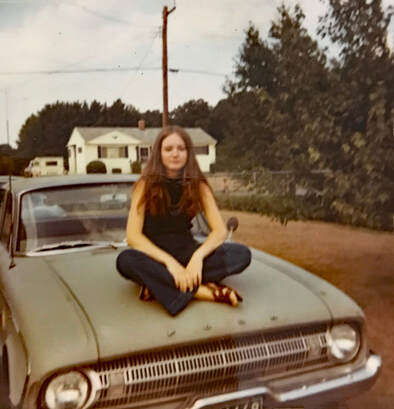 Sharon in 1970 Sharon in 1970 I was miserable with the prospect of what was ahead for me if I didn’t go. My mother seemed so unhappy, as did my older sister. Leaving wasn’t just for me. It was as though I was breaking out for them, too, demonstrating it was possible to live a different life. Plus I had my older sister with me when I left, which made me feel protected. The catalyst for that leap was being dumped by my first real boyfriend, which left me feeling empty and hopeless. It took a different kind of courage to decide to share your story—a story that you had kept to yourself for a long time. What gave you that courage? As I read writers like Mary Karr and Cheryl Strayed, I saw that what made their books shine was the honesty. They had great stories, and I knew I had a good story, too. But it would be empty if I didn’t share my deepest thoughts and feelings, good or bad. My success and sense of accomplishment in my career and my personal life as I grew older made me strong enough to share my story regardless of others' reactions. In the Epilogue, you mention that you began writing as a way of healing from unresolved hurts. At what point did the book transition from personal writing to something you wanted to share with others? 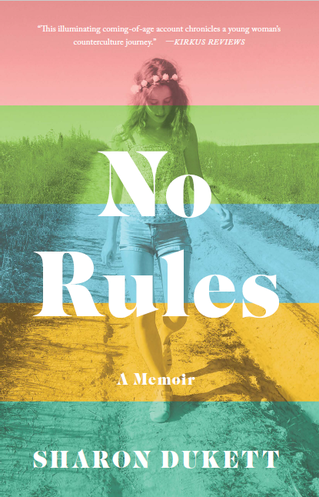 It quickly transitioned as I got caught up in the memories of the times. I had always wanted to write a book, but when I was younger I never knew what to write about. Once I began writing about this, I didn’t want to stop. But until I had a personal computer, the idea of using a typewriter was overwhelming. If the personal computer had not been invented, I would have never been able to complete a book. In No Rules, you write honestly about some difficult subjects. What parts of the book were most challenging to write? I found one of the most challenging subjects was writing about falling in love with someone that I later came to despise and recognize as a con artist. I had to recapture the naïve innocence I felt at the time and block out what I knew would come later. It was difficult remembering being attracted to him as he later repulsed me. Were there parts you especially enjoyed writing? 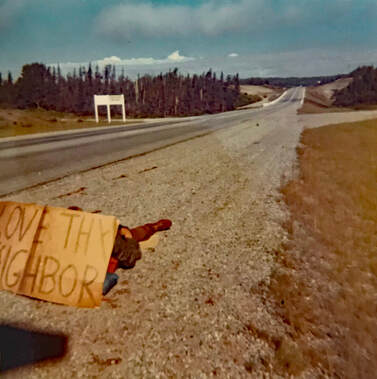 Hitching across Canada Hitching across Canada There were some parts that just flowed out of me like they were already written, and I was just the conduit putting the words on paper. I cried through writing the scene with Cindy after she finds Jesus. And the trip across Canada could have been an entire book alone. It was much longer in the original draft. Reliving those memories were like re-experiencing the trip. What helped you access the memories that form the basis of No Rules? 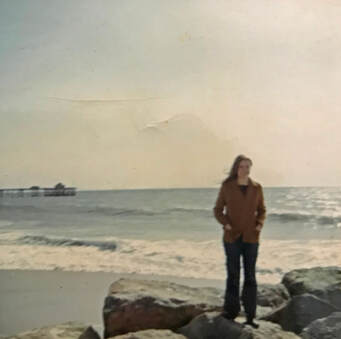 Venice Beach Venice Beach Because this was such a momentous time of my life, much of this was deeply ingrained in my memory. I even believe I recall some exact dialog. I did write the entire first draft in the 1990’s when it was all fresher in my mind. I have some photographs from the time that I used for reference. For example, I have a group shot of those on the ride from Patterson, NJ to Ohio, and photos of our room at the A-House in Provincetown. I also found the more I wrote, the more the memories would overtake me. When you are writing memoir, you take up residence in that time and place and the images and experiences flood back at you. I also played music I listened to during that era, particularly if it was music I don’t often hear. I loved what you wrote in the Epilogue about the people from that time in your life being your “first tribe.” How did they function in that role? 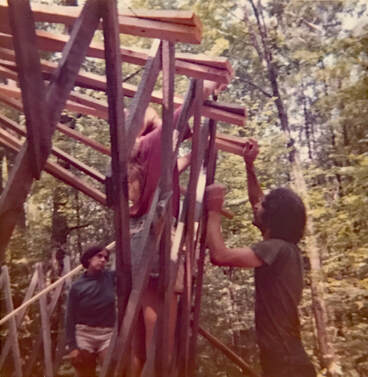 Yurt building Yurt building Despite some of the bad things that happened, we were all part of a larger community. No matter where you went, you could easily connect with others because they looked like you. I learned so much from all these people because our backgrounds were highly diverse. It didn’t matter what socio-economic, ethnic or religious background you came from—no one cared, and no one typically asked. I don’t think that has ever happened in America before or since. You can’t live through a time like that and not recognize the common humanity in all of us. Once you’ve seen it, you can’t un-see it. In the acknowledgments you say the book is an accumulation of years of work. Take us through your journey from initial idea to publication. How long did you spend writing and revising the book? What avenues did you explore in pursuing publication? How did you come to be published by She Writes Press?
You also mention that you belonged to a writer’s group. What did you find valuable about that experience? Were there any challenges? 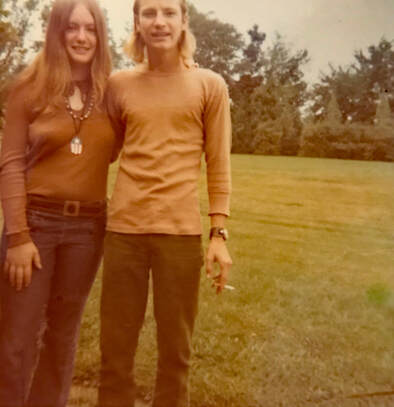 Sharon with Ernie, 1972 Sharon with Ernie, 1972 I spent several years in the writers group. I don’t think I was always open to the input from some of the members, probably because of how it was presented. But generally speaking, even those that came across as being overly critical had truth I could learn from. In time we modified our process for critique so we had to start out with three or more positive comments first before any negative comments. This was better for all of us because writers need positive reinforcement of what works along with knowing what to improve. It was fairly time consuming as there were four or five of us turning in lengthy chapters for review every two weeks. I know my chapters tended to be 7,000 or 8,000 words each. They were all cut a lot when I revised later on. I stayed in that group until I put the work aside in 2000. What do you hope readers will take away from No Rules? 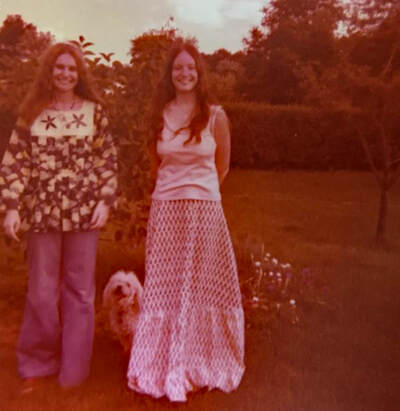 Sharon with her older sister Anne Sharon with her older sister Anne I want readers to experience what it was like to live in those times, and the transformation that came about as a result of discovering feminism and growing my own strength. What did you gain by writing the book? By writing this book, I have completed a goal I had for years, and often wondered if I would ever reach. By doing so, I was able to preserve a unique time in history that no longer exists and will always be part of who I am. What’s next for you as an author? I am currently working on a thriller novel that takes place in the near future when climate science has been declared to be illegal propaganda in the US, and activists are detained and disappear. Anything else you’d like to add? One of the greatest experiences of being a writer that I never expected, particularly now because of social media, are the wonderful writers I have met and connected with online. My new tribe is made up of writers who are supportive of one another and offer support and information. We inspire each other and help one another reach our goals. I have discovered I am once again part of a larger community.
8 Comments
Sally Kane
8/19/2020 06:03:34 pm
I read this interview with intense interest because I'm in my own process of writing a memoir (from scratch). Sharon has a story to tell and I now look forward to reading No Rules. I thought your insightful questions really pulled her out. She jumped through so many hoops, over many years, to extract this story and write it well. It showed me the lengths one may go to carry out a labor of love, which, indeed this story seemed to be.
Reply
Nan
8/24/2020 08:56:48 am
I think you'll enjoy No Rules, Sally -- a lot of it will bring back your own memories of the times.
Reply
8/20/2020 05:06:19 am
I can feel the emotion in Sharon's voice. This story is a part of her heart, I am so happy for her allowing her story to be shared with others. What a very special time in her history and for us who lived through that time. I hope folks reading this interview are inspired to write their own stories or at least about a specific time in their lives. The writing will offer a new perspective on their life and allow reflection to understand happenings never realized until the story is told. I am working on a memoir and could identify with so much she said about her writing this one. Thanks for the interesting interview.
Reply
Nan
8/24/2020 08:58:30 am
You're so right, Janet. And it's good to be reminded that writing a book-length memoir isn't the only option. Shorter pieces can also tell compelling stories.
Reply
Sally F Pobojewski
8/22/2020 12:01:46 pm
Everyone has a story to tell, but not everyone has the talent and determination to tell it. I enjoyed reading about Sharon's story and will look for her book.
Reply
Nan
8/24/2020 08:59:38 am
I'll be interested in your thoughts about the book, Sally.
Reply
Katherine Myers
8/25/2020 05:30:14 pm
This was a fascinating interview, and I think I especially enjoyed it knowing how much time, effort, energy, etc., etc., went into writing your own memoir. I will add it to my ever growing list, but memoirs always get bumped to the top!
Reply
Nan
8/29/2020 08:57:04 am
This one's definitely worth moving up on the list.
Reply
Leave a Reply. |
Written from the heart,
from the heart of the woods Read the introduction to HeartWood here.
Available now!Author
Nan Sanders Pokerwinski, a former journalist, writes memoir and personal essays, makes collages and likes to play outside. She lives in West Michigan with her husband, Ray. Archives
April 2022
Categories
All
|
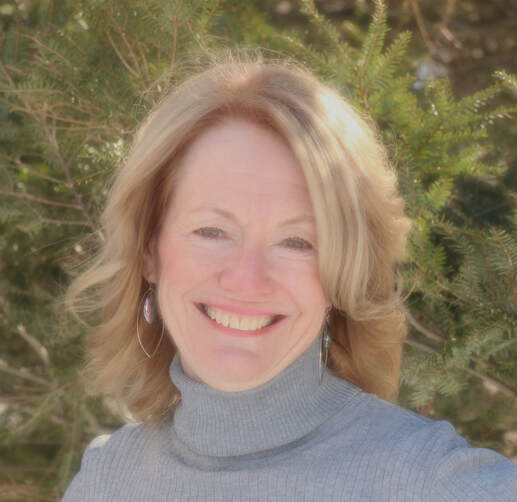

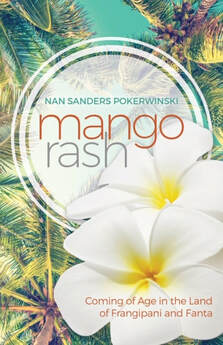
 RSS Feed
RSS Feed